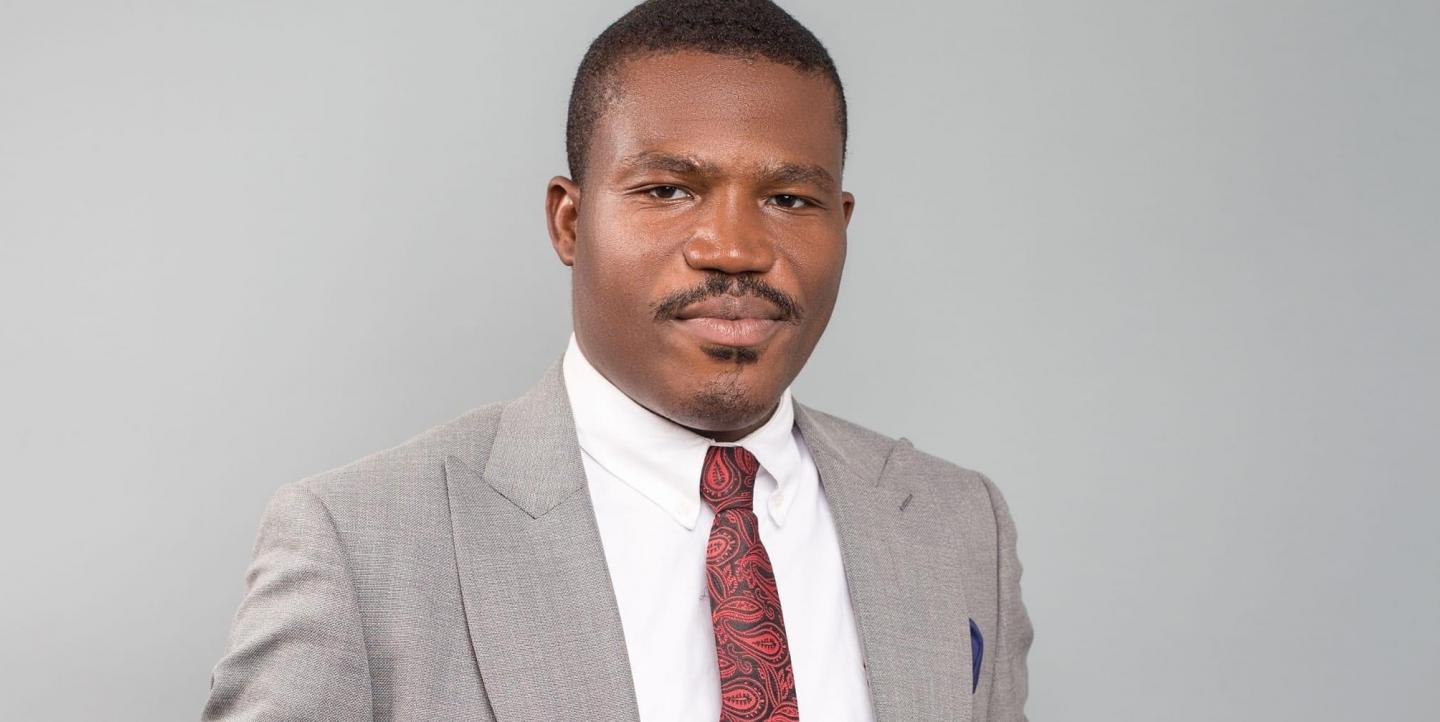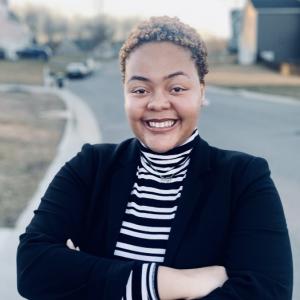At a young age, Ghanaian freelance journalist Fred Duhoe was inspired by BBC World News presenter Komla Dumor. Remembering Dumor’s career gave Duhoe the extra motivation he needed to leave teaching and pursue a career in journalism.
“He was on a national radio station every morning holding authorities accountable. The flair and enthusiasm he exhibited urged me to leave the classroom as a professional teacher to further my education and to become a journalist,” said Duhoe.
After teaching for five years in the Volta Region of Ghana, Duhoe decided to pursue journalism in 2015. “My journalism career basically started a year after I quit teaching. I was practicing with a local radio station while pursuing my journalism degree at the Ghana Institute of Journalism,” he said.
[Read more: Reporting on conflict and insecurity, this outlet is filling a coverage gap in Nigeria]
Two years later, he started practicing journalism professionally. Since then, Duhoe has freelanced for BBC News Pidgin, Joy News and Ghana Business News crafting stories and shedding light on issues that impact the lives of Ghana’s citizens.
“I’ve done stories to promote Ghana’s tourism industry, business-related stories and community-specific stories on water. I would say my favorite of all is the story about the plight of the children on Siamekome Island that has since gained the attention of the Australian High Commissioner to Ghana, Gregory Andrews,” said Duhoe.
As a freelance journalist, Duhoe encounters many obstacles when pursuing his next story, but his passion for using reporting as a tool to educate and to inform his community is what pushes him to keep moving forward.
“Among them [there] is the unavailability of financial support for freelance journalists like me to go about my duties. I have to use my personal resources to travel in search of impactful stories,” said Duhoe. “Another critical concern is the hostility towards journalists in Ghana. Sometimes, journalists are attacked in the line of duty, which causes fear and anxiety on the job.”
What projects are you currently working on?
Currently, I’m working on a project in collaboration with the Australian High Commission in Ghana to provide solar light installation for a small island community that has had no light over the past few decades. Thirty children in school have to rely on phone torchlights to study at night. In case of any emergency at night, they have to wait till the break of dawn. We’re at the early stages of an application for funding for the project to commence.
I also have a nonprofit organization, the LiftUs Foundation, which is made up of a team of 10. Our objective for the next two years is to solicit logistics like wheelchairs to aid physically challenged persons.
How does journalism in Ghana differ from the reporting you’ve seen in other countries?
We leverage limited resources to attain greater results. Comparatively, the poor salaries journalists in Ghana receive do not give them the motivation to explore beyond their scope compared to what other countries like the U.K. and U.S. offer their journalists.
With my experience with the BBC as a freelancer and working as a journalist in a national organization in Ghana, it’s obvious that the demands placed on journalists in Ghana are enormous.
You mentioned that you do not always generate revenue for the reporting you do. What do you do to make a living, and how do you balance this with your work as a journalist?
I'm not paid when I report for local media, but the BBC pays me whenever I’m engaged for a period. I personally own a drone and render drone services to the public. I leverage social media to advertise my work and that’s how I get recommendations for my services to be used. This is what keeps me going as a journalist.
[Read more: Young newsroom reports on humanitarian issues in Nigeria and greater West Africa]
How have you used IJNet and ICFJ to further your career?
I’ve been part of a couple of ICFJ’s training sessions, including one on how to use social media tools to investigate profiles engaged in crime. I’ve also attended COVID-19 reporting sessions and a host of other insightful programs. Programs like these, and ones I hope to attend in the near future, are shaping my reporting and eliminating the spread of disinformation.
Where do you hope to see your career in journalism go next?
My biggest dream for my journalism career is to work for the BBC as a full-time journalist in the next three to five years. I would like to tell very impactful stories that engender national conversation, which will bring relief to the vulnerable in Ghana’s society. I would equally love to further my education outside Ghana to gain degrees in communications and journalism.
Photo courtesy of Fred Duhoe.


